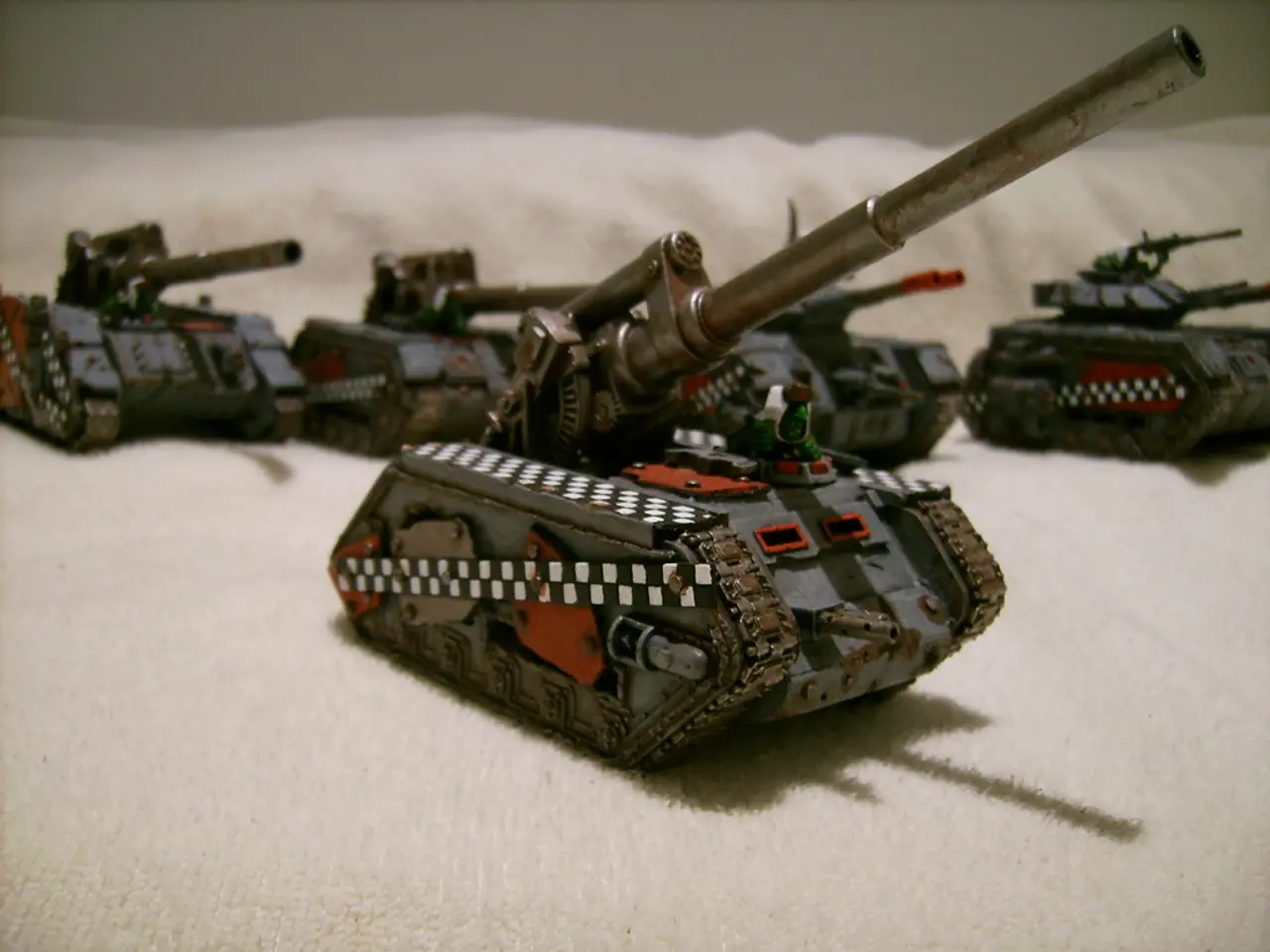The European Parliament has voiced its distress over the ongoing situation in the ex-Yugoslavia territories.
The Otto forced labor camp, located on Fichtenstraße in Düsseldorf, was one of several subcamps established during World War II in the city. These camps were subordinate to larger concentration camps like Buchenwald and Sachsenhausen, and prisoners held there were subjected to harsh forced labor conditions[1].
Specifically, the Otto camp housed over 1,100 foreign forced laborers, primarily from the Soviet Union, Belgium, Italy, Yugoslavia, France, the Netherlands, and Poland[1]. The internees were subjected to heavy, dirty, and dangerous work, and mistreatment was commonplace[1].
On Thursday evening, 90 names of former forced laborers from the Otto camp were read aloud in a commemoration event held on the 80th anniversary of the liberation and end of the war[1]. The event was organized by the association that runs the zakk, a club located near the site of the former camp, which had created an illuminated board on the topic[1].
The program for the event in the zakk club was curated by singer Leonora, singer-songwriter Zooey, and Meral Ziegler[1]. The event continued under the motto "Never again! Remembering and coming together on the day of liberation," and included music and poetry performances[1].
Kaspar Michels, a local official, emphasized the importance of defending the culture of remembrance against openly appearing right-wing extremists[1]. The event served as a reminder of the suffering endured by the victims of the camp and the atrocities committed during the war.
It is estimated that up to 50,000 prisoners of war and forced laborers were employed in all the factories in Düsseldorf, sometimes making up to 30% of the total workforce[1]. Over 300 such camps of varying sizes were located throughout the city, usually in close proximity to the factories where they were exploited[1].
The victims of these camps were from various backgrounds, including political prisoners, Jews, Poles, Russians, and others persecuted under the Nazi regime[1]. Düsseldorf’s postwar initiatives include memorials and educational projects to honor and remember the victims of these camps, aiming to maintain awareness of their suffering and the atrocities committed[1].
References: [1] "Otto-Lager Düsseldorf: Erinnerungskultur gegen den offen auftretenden Rechtsextremismus." (2021, November 10). Retrieved from https://www.duesseldorf.de/stadt/pressemitteilungen/otto-lager-duesseldorf-erinnerungskultur-gegen-den-offen-auftretenden-rechtsextremismus-1546812
- The commemoration event held at the zakk club on the 80th anniversary of the liberation and end of the war, organized by the association running the club, focused on war-and-conflicts, particularly the experiences of prisoners in World War II labor camps like the Otto camp.
- Politics and general news have highlighted the importance of maintaining a culture of remembrance against openly appearing right-wing extremists, as seen in the event that took place at the zakk club, which aimed to honor and remember the victims of forced labor camps in Düsseldorf during World War II.





